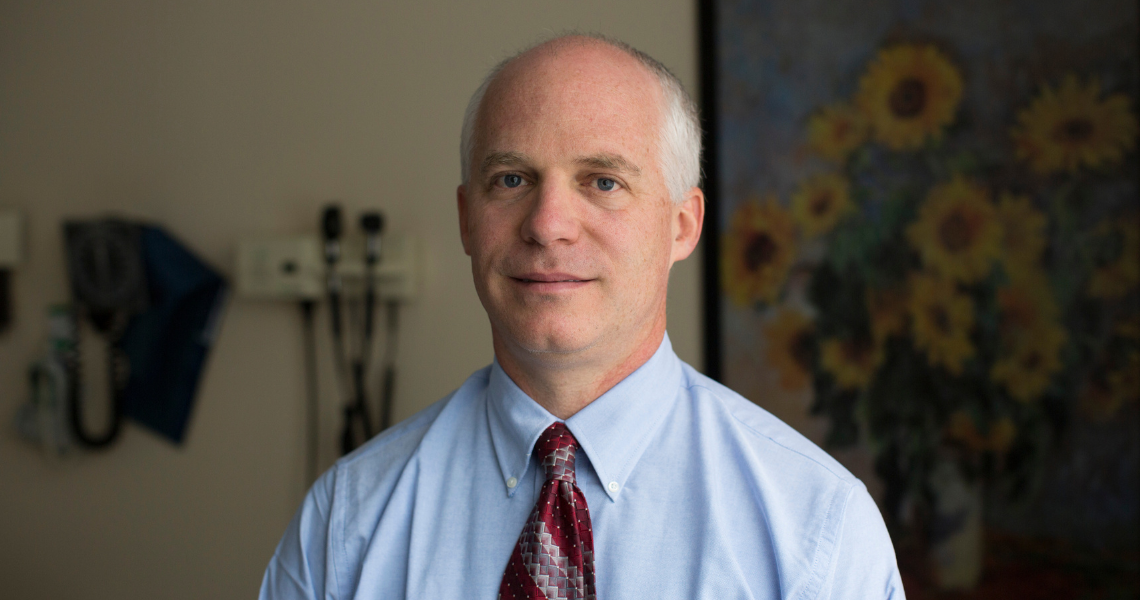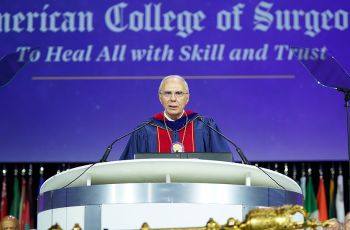Nearly 250,000 people in the United States will receive a lung cancer diagnosis in 2022, according to the American Cancer Society. However, thanks in part to a drop in smoking nationwide, the number of new lung cancer diagnoses is declining steadily each year.
Early detection of high-risk lung cancer cases can reduce chance of death by up to 20%. With November as Lung Cancer Awareness Month, if you’re a smoker or you have been in the past, now might be a good time to ask your doctor if lung cancer screening is right for you. Here, Daniel Baram, MD, associate professor of medicine at the George Washington University (GW) School of Medicine and Health Sciences, and division director of pulmonology medicine at The GW Medical Faculty Associates, discusses lung cancer risks and the benefits of early detection.
What is the most common cause of lung cancer and are there other factors that can lead to lung cancer?
The primary causal factor in lung cancer is smoking. The majority of patients with lung cancer are smokers or ex-smokers. The likelihood of developing cancer is proportional to the exposure. Doctors measure exposure in pack-years — the average number of packs smoked per-day times the number of years of smoking. Many non-smokers who develop cancer report extensive exposure to second-hand smoke, which is now called “involuntary smoking,” over their lifetimes, especially during childhood. There are other contributors to lung cancer, such as marijuana smoke, exposure to radon gas, occupational exposures such as asbestos, and underlying lung disease.
If you used to smoke, but quit, are you still at risk of developing lung cancer?
After several years of quitting smoking the risk of developing lung cancer does begin to fall. By fifteen years of quitting smoking, the rate of cancer approaches, but never reaches the level of risk for those who have never smoked. It is important to remember that quitting smoking today does lower your risk immediately by not further increasing risk that each additional cigarette adds to your total pack-years.
What are some of the symptoms of lung cancer?
There are many signs of cancer. Cancer in the lung can cause cough, coughing up blood, wheezing, recurrent pneumonia, and shortness of breath. When cancer spreads, it can lead to fatigue, weight loss, weakness, bone pain, and headaches.
The Lung Cancer Research Foundation has a handy acronym to spell out those symptoms:
B – Blood when you cough or spit
R – Recurring respiratory infections
E – Enduring cough that is new or different
A – Ache or pain in shoulder, back, or chest
T – Trouble breathing
H – Hoarseness or wheezing
E – Exhaustion, weakness, or loss of appetite
Who should get screened for lung cancer, and how often should you get screened.
Lung cancer screening is now recommended by the U.S. Preventative Health Task for people ages 50 to 80 who have a 20 pack-year smoking history and currently smoke or have quit within the last 15 years.
What is involved in a screening test for lung cancer?
Lung cancer screening is done by having a CT scan of the chest every year. The radiation dose is lowered below that of a usual scan to make it as safe as possible. It is important to know that many patients will have some nodules or scarring on their chest, but most of these are not cancers.
Does the GW MFA offer lung cancer screenings?
GW MFA does offer lung cancer screening. Patients are encouraged to speak to their physicians to discuss screening or they can call 1-855-495-8647 (1-855-GW-LUNGS).




